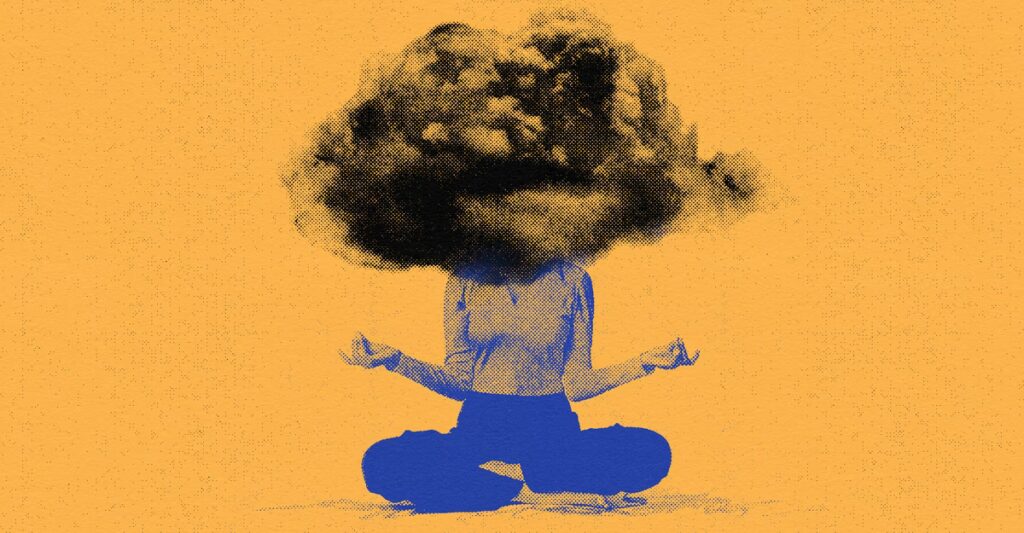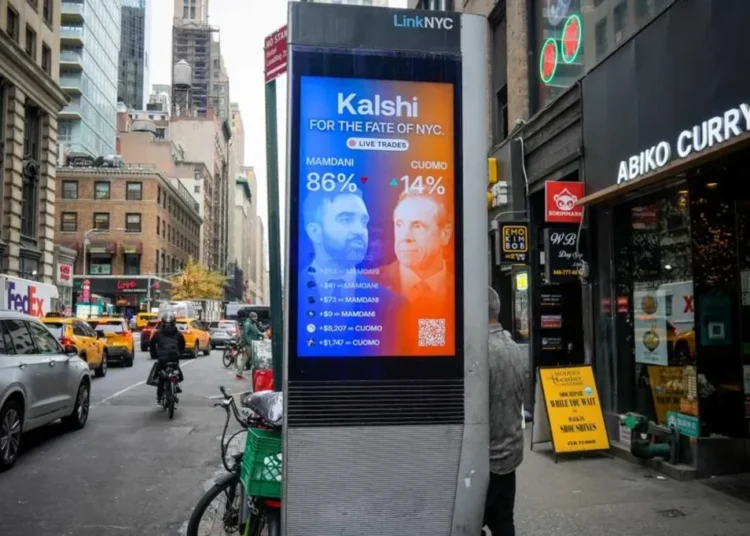The notion that your 20s are the best years of your life is more rumor than reality. It shows up in songs, films, ads, social-media posts—but it says more about Americans’ idealization of youth than it does about what it actually feels like to be young today. The 2024 World Happiness Report found that when American adults were asked to rate the extent to which they were living their “best possible life,” those over 60 answered the most positively, followed by 45-to-59-year-olds. People younger than 30 trailed behind. Still, the idea that young adults ought to be at peak happiness is tough to shake, a cliché passed down by older people who know better. A 2021 YouGov poll found that the group most likely to think that their 20s would be their best years are 18- and 19-year-olds who haven’t yet experienced them.
For 25 years, I’ve worked as a developmental clinical psychologist specializing in 20-somethings. Often, when I tell people about my work, their responses are dismissive or confused. They wonder what young people—without the challenges of partners or kids or mortgages or aging bodies—could be so unhappy about. But 20-somethings are the least likely group to have the things that make people happy and healthy: secure homes and careers, stable love lives and friendships. What they do have is more than their share of firsts and worsts with respect to jobs, bosses, relationships, breakups, roommates, and apartments. It’s rough. And it’s gotten rougher: Rates of depression and anxiety among 20-somethings spiked during the early coronavirus pandemic. Nevertheless, young adults have long been more likely than older adults to struggle with their mental health—at least since I saw my first client, in 1999.
Over the past three decades, adult sources of stability have become more and more likely to be realized in one’s 30s rather than one’s 20s. Today’s young workers will have, on average, nine different jobs by age 37. Only about 40 percent of American adults under 30 say they find their work fulfilling or enjoyable, while almost a quarter say it is overwhelming (these figures improve with age). According to the Pew Research Center, the current crop of young adults is better educated and better paid than their late-20th-century counterparts, yet as of 2024, fewer than half of 25-to-29-year-olds were completely financially independent, and only two-thirds of people in their early 30s were—at least in part because of student debt.
The road toward occupational and financial security is long and winding, and this affects life outside of work as well. It contributes to the fact that, contrary to what Instagram posts may lead us to believe, young adulthood can be the loneliest time of life. Twenty-somethings are the group most likely to move in any given year—often to follow a job or look for a better one—leaving friends and support systems scattered. And with only half married by 35, young adults spend much of their life between families, no longer in their childhood home but not yet in the one they’ll create on their own. The median age of first-time homebuyers, which was 28 in 1991, is now at an all-time high of 40.
[Read: The one-size-fits-all narrative about your twenties needs to change]
The uncertainty that goes along with not having adult sources of safety—and not knowing if you ever will—is hardly fun. The brain interprets uncertainty as danger. In recent years, researchers have discovered that uncertainty is a stressor that puts us at risk for a wide variety of mental-health concerns, including anxiety, depression, eating disorders, and suicidality. As one 20-something client put it, “I don’t have a lot of knowns in my life.”
What many 20-somethings do feel sure of is that they’re falling far behind peer, parental, and societal expectations when it comes to meeting adult milestones. One 29-year-old told me that she felt like she was “failing” because she was single and didn’t have a more prestigious job. A 27-year-old man explained his hopelessness this way: “People used to have a house and a spouse by now. I see it in the news all the time.” So do I, in research and articles that persist in referencing the norms of 1975.
Comparing what’s happening now with what life looked like half a century ago—an era that wasn’t so great for everyone—isn’t helping anyone. Neither is diagnosing generations and blaming their phones. I’m no fan of social media—nor are most of my clients and students—but young people have bigger problems. In a 2024 survey of university presidents, 86 percent named social media as one of the most important drivers of college mental-health woes, compared with only 33 percent of students themselves. Young adults were more likely to point to the struggle to balance schoolwork with personal, financial, and familial duties.
Telling young adults that if they’d just put down their phone, that’d solve things, or that something’s wrong with them if they’re not happy, only adds to their concerns. If you want to help a 20-something, have some empathy for the uncertainties they wake up to each day, and show them the data about what’s ahead: In a 2022 study of adults in the United States, happiness and satisfaction increased across every decade of adulthood from the late teens to the 70s and beyond. So did every other measure of well-being, including close relationships, financial stability, meaning and purpose, and mental health. Importantly, this study, and others that have found a similar upward slope in well-being, include data from the earliest generation said to have “delayed” adult milestones: Gen Xers, who are now in their 40s, 50s, and 60s.
Young adults may no longer have work and love sorted out in their 20s, but they can use their early adult years to build the kinds of skills and relationships they will still feel good about as they age. This is what we ought to be telling them. They’re not delayed or damaged or doomed. They’re digging in. I don’t expect my 20-something clients to have it all. I do expect them, and 20-somethings everywhere, to become happier and healthier over time, as they become more likely to have—and do—what makes people happier and healthier.
This message matters because young adults who have hope for the future are less likely to feel anxious and depressed. They’re more likely to eat well, exercise, and set goals and work toward them. If you don’t believe the hype that these are supposed to be the best years of your life, you won’t panic when they’re not. I tell my clients that if their 20s turn out to be the best years of their life, something has gone seriously wrong. Life can—and does—get better as you go.
The post We’re Thinking About Young Adulthood All Wrong appeared first on The Atlantic.




